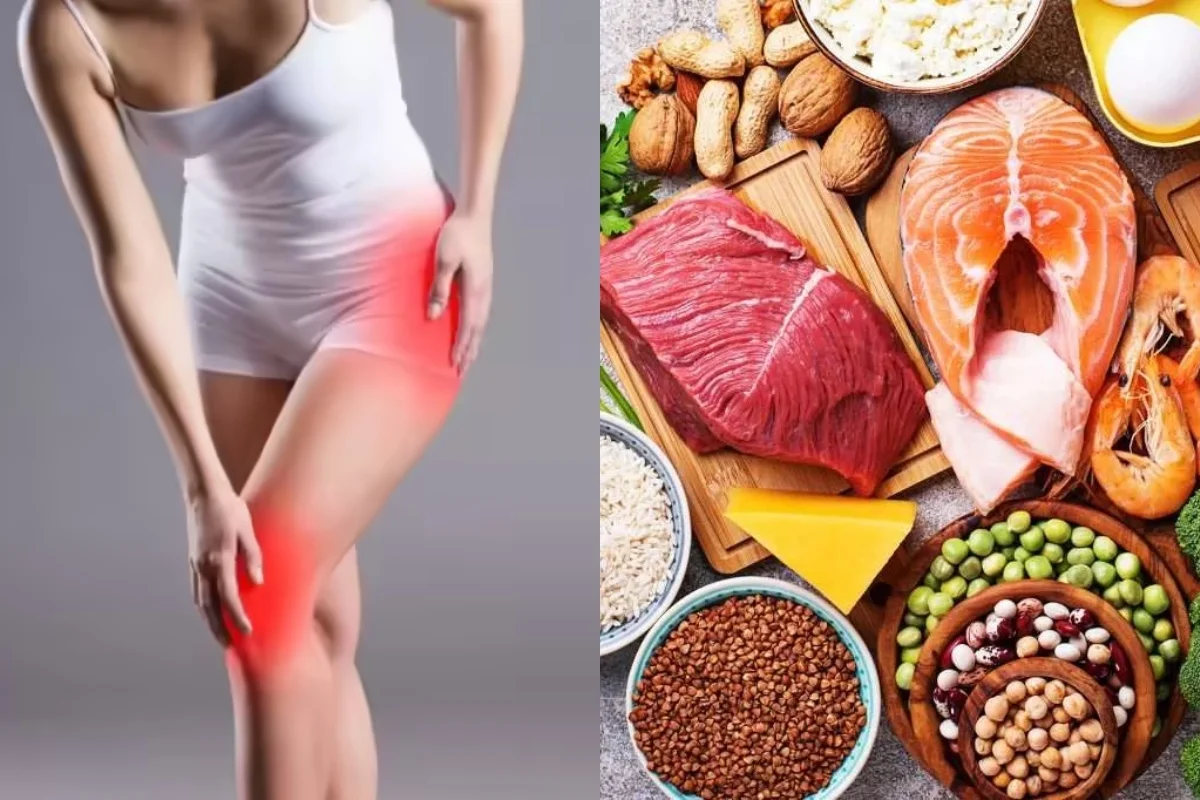Uric Acid Management is essential when minor imbalances silently turn into severe joint pain, swelling, or stiffness. Many people dismiss early signs as fatigue, but the real trigger often lies in hidden food habits and unregulated protein intake.
Excess protein, especially from red meat, seafood, or processed foods, can elevate uric acid levels, leading to gout and discomfort. By making mindful dietary choices and incorporating safer protein alternatives, you can effectively manage uric acid levels and protect your long-term joint health.
Expert Tips for Uric Acid Management Through Diet
Nutritionist Leema Mahajan explains in a video that you don’t need to cut all proteins if your values rise. She says knowing what to eat, how to eat, and when to eat is the real approach. What must be avoided is also detailed in her comments.
- Tofu, eggs, curd, and nuts are all protein-rich options that are safer choices than meat.
- Whole grains, peanut butter, and low-fat dairy products like dahi and toned milk support energy without raising uric acid levels.
- Bright fruits like cherries, strawberries, and blueberries contain anthocyanins that lower joint inflammation.
- Pulses, mushrooms, and peas are safe in moderation and still provide fibre, minerals, and plant-based protein.
These adjustments can make daily uric acid management smoother without creating nutrient gaps.
Foods and Habits To Avoid For High Uric Acid
She also points out groups of foods and habits that worsen the condition if ignored.
- Excess sugar and alcohol trigger flare-ups and make uric acid spikes more frequent.
- Red meat and seafood add too many purines and lead to painful swelling over time.
- Sugary sodas and cold juices disturb insulin balance and increase metabolic stress.
- Long gaps without water dehydrate the kidneys and slow down uric acid removal.
Knowing such foods to avoid for uric acid helps reduce repeated suffering and long-term joint pain.
Natural Foods That Support Balance
Certain natural choices help the body remove uric acid more efficiently and calm symptoms. Starting the day with amla juice or snacking on oranges helps boost vitamin C intake. Lightly boiled raw papaya provides papain, which eases digestion and reduces joint pressure.
Cinnamon, added to warm water or oatmeal, helps manage insulin resistance associated with higher blood sugar levels. Even black coffee or green tea, consumed in moderation, supports balance by providing antioxidants that inhibit uric acid formation.
Understanding Uric Acid Effects and Key Symptoms
High uric acid symptoms include joint pain, swelling, stiffness, and red patches over inflamed areas. In severe cases, sharp pain can disturb sleep. Delay in treatment may worsen both mobility and kidney health.
How Protein Intake Affects Uric Acid?
Proteins rich in purines, mainly from red meat and seafood, produce too much uric acid during digestion. Safer proteins, such as nuts, tofu, and dairy, reduce the burden. Experts suggest a balanced protein intake that meets daily needs, without over-restricting essential nutrients.
When to Seek Medical Attention?
Persistent pain, swelling, or frequent flare-ups despite making dietary changes require urgent medical attention. Severe high uric acid symptoms, kidney concerns, or gout attacks mean lab tests and expert guidance are essential. Regular follow-ups help track improvements safely.
Balancing your diet, staying hydrated, and learning about foods to avoid for uric acid are crucial for steady, long-term management.
